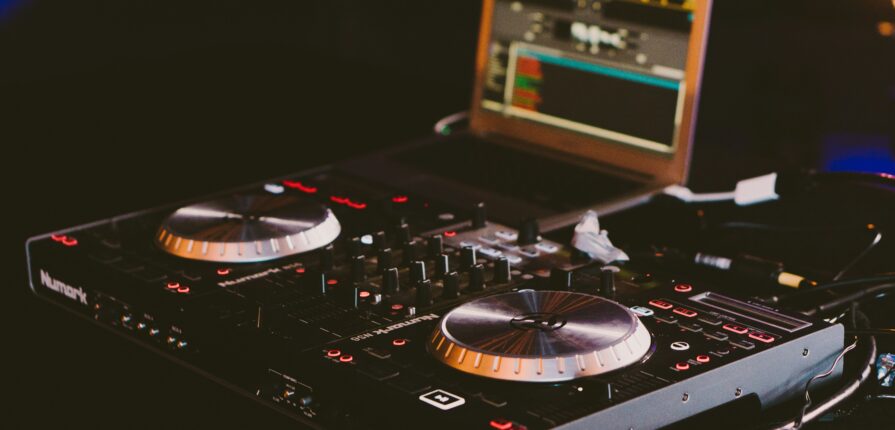The idea of artificial intelligence (AI) stepping behind the decks or taking over radio airwaves is no longer science fiction—it’s a fast-emerging reality. From crafting seamless playlists to mixing beats with uncanny precision, AI DJs are changing how we experience music. But can these digital performers truly replace the artistry and personality of human DJs? This blog explores the rise of AI DJs, their capabilities, and their potential to reshape the music and broadcasting industries.
-Tuesday, January 7
What Are AI DJs?
AI DJs are software programs or machines powered by advanced algorithms designed to curate, mix, and play music. These systems analyze vast amounts of data—such as music preferences, tempos, and energy levels—to create personalized playlists or live sets. Some of their standout features include data-driven music selection, automatic beatmatching for flawless transitions, and 24/7 availability, making them ideal for platforms like radio stations or all-night venues.
How Are AI DJs Used Today?
AI DJs are already making waves in clubs, on radio, and across streaming platforms. Tools like Algoriddim’s djay and VirtualDJ have allowed even amateur DJs to mix tracks effortlessly or let AI take over transitions during live performances. In some clubs, AI handles warm-up sets before headliners take the stage, maintaining energy and vibe. On radio, AI DJs like Tencent Music Entertainment’s “Amy” deliver real-time updates, music, and news tailored to listeners’ preferences. Streaming services such as Spotify and Apple Music take this personalization further with curated playlists like “Daily Mix” and “Discover Weekly,” functioning as virtual music selectors that adapt to individual tastes.
The Advantages of AI DJs
AI DJs bring precision and efficiency to the table. By analyzing variables like tempo, key, and energy levels, they ensure seamless transitions and eliminate errors common in live sets. They are also cost-effective and scalable, enabling platforms to automate music curation without hiring multiple DJs. Beyond this, their ability to adapt to audience preferences allows them to deliver hyper-personalized performances, all while being available around the clock. However, efficiency and availability are just part of the story.
Can AI Match Human Creativity?
While AI excels in precision, it struggles with the artistry that defines human DJs. A great DJ doesn’t just mix music—they read the room, build emotional connections, and tell a story through their set. AI lacks the emotional intelligence to spontaneously switch genres or make decisions based on the unique energy of a crowd. Moreover, the narrative arc of a DJ set—its highs, lows, and surprises—remains a uniquely human touch. While AI may replicate patterns, it often falls short in creating the kind of memorable, soulful experiences that audiences cherish.
How the Industry Is Responding
Musicians and DJs are embracing AI as a tool rather than a replacement. Artists like David Guetta have used AI to enhance their performances, but they’re quick to point out that AI serves as inspiration rather than competition. “AI will never replace DJs,” Guetta said. “But it can inspire us and make us better at what we do.” Radio stations have adopted AI DJs for off-peak hours or as assistants, though human personalities remain essential for prime-time slots. Clubs and venues are taking a similar approach, with AI managing background sets while human DJs dominate headlining acts.
The rise of AI DJs brings its share of challenges. Copyright issues arise when AI-generated mixes blur the lines of ownership. Additionally, reliance on data trends risks creating formulaic, repetitive sets, potentially stifling musical diversity. Most importantly, some fear that as AI takes on more roles, it could devalue the effort and artistry that human DJs bring to their craft.
What Does the Future Hold?
The future likely won’t see AI fully replacing human DJs. Instead, the two will coexist, each playing distinct roles. AI may handle repetitive tasks, like beatmatching or playlist creation, freeing human DJs to focus on creativity. Hybrid performances, where AI assists human DJs in crafting unique experiences, may become the norm. For low-stakes events or background music, AI will thrive, leaving high-profile gigs to the emotional and charismatic touch of human performers. AI DJs offer exciting possibilities with their precision, personalization, and efficiency. They’re revolutionizing music curation and performance, but the heart and soul of a great DJ—emotional connection, creativity, and improvisation—remain uniquely human traits. As technology evolves, it’s clear that AI will enhance the industry, but it will never replace the magic that only human DJs can bring to the stage.


